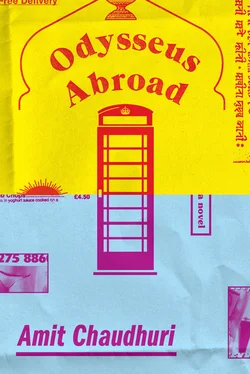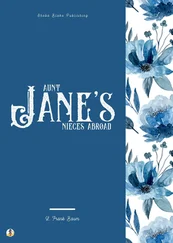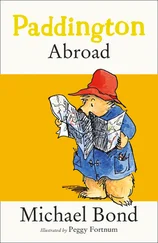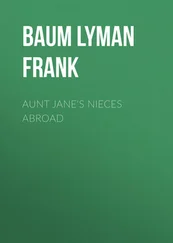“ My birthday,” his uncle snapped a bit of the poppadum off (the conversation had to veer round at some point to the enduring theme: himself), “falls on a particularly unlucky day.”
“Thirteenth June?” Ananda recalled it well. Last month, his mother had stood before the cooker and, over an hour, reduced a pan of milk to produce rice payesh for her “dada”—a delicate thing, almost unbearably sweet, such as both she and his uncle preferred. But he’d orchestrated a terrible quarrel on the phone — punishing her for her old and recent transgressions, including the mistake she’d made in confiding in Basanta in Pinner, and possibly for even having the temerity to marry Satish at all. Those deeds couldn’t be undone. But it was his birthday. She’d transferred some of the payesh to a bowl, covered it with a saucer, tied the whole makeshift arrangement with a cloth, and, to Ananda’s chagrin, carried it via the tube and road to Belsize Park. “He’s a vagabond,” she’d soothed Ananda. “You can’t take his rages seriously.”
“Not just 13th June!” said his uncle in a pained hypochondriac’s tone. “ Friday the 13th. My birthday. The unluckiest day of the year.” A shout was released from the other table as someone made a little speech.
“What’s wrong with thirteen?” asked Ananda. “Baba always says thirteen is his lucky number. You know his roll number was thirteen when he appeared for his Chartered Accountancy exams. And he passed!”
His father: a foil to his wife and his best friend. Tranquil and moored.
“Your father!” His uncle shook his head fondly.
Coming out of nowhere, the waiter shouted: “Tarka daal!” What joy! The evening’s climax! Nothing — not even the eating — could match the festive instant of the order materialising. “One pilau rice!” Retrieving more from the trolley, he continued: “One jhalfrezi! One Bombay alu!” A pause. “All right?”
“My goodness, this is fit for a king!”
“Khub bhalo,” said Ananda. “Dhanyabad.”
The waiter seemed not to hear the Bengali words — he stood beside the table, congenial and undecided.
“Apnar naam?” asked Ananda.
“Iqbal,” said the man, a bit guarded.
“Wonderful name! A very famous poet — Iqbal!” said his uncle. He then emptied half the platter of the pilau rice on to his plate — red, white, and yellow grains, perfumed with cloves, cinnamon, and cardamom, a few possibly stiffened by the microwave’s heat. “Pupu, have some!” He must be starving — Ananda had heard his stomach bubbling — but he was serving himself with considerable discipline. He wouldn’t start until he’d cajoled Ananda into having an inaugural mouthful.
“Some jhalfrezi?” Iqbal said. He’d picked up a serving dish with alacrity.
“We Bengalis,” said his uncle in standard Calcutta Bangla, “eat course by course — I have no idea why. I like mixing things up. Pupu, what are you doing, have some Bombay alu!”
In prelapsarian undivided Bengal, as his uncle had once revealed wryly to Ananda, the Bengali Hindus were called “Bengalis,” the Bengali Muslims just “Muslims.”
Iqbal was vaguely nonplussed.
“Are you gentlemen from Calcutta?” he asked politely.
“I’m from India,” said Ananda. “But my parents were from Sylhet. This is my uncle — he was born in Sylhet.”
He lifted up a spoonful: the daal was incredible — a ghee and garlic-infused ambrosia.
Iqbal studied Ananda’s uncle, who appeared to be rotating the food in his mouth in dilatory contentment.
“Which part of Sylhet are you from?” He’d switched to Sylheti — always charming to hear: this fluent, rapid, and intimate tongue.
“Habiganja,” replied his uncle serenely, having just swallowed. “We grew up in Sylhet town — in Puran Lane when we were small, then mostly in Lamabajar.” Being a Tagorean, he refused to answer him in the rustic tongue of his childhood, but addressed him in a slightly affected Bengali, trying (as usual) to disguise the East Bengali inflection he’d never be rid of. Gesturing to Ananda, he volunteered grandly: “My sister’s son. Can you tell?”
“Habiganja!” said Iqbal, not attending to this last query. “I know Habiganja…and Lamabajar!” He smiled reminiscently.
“Who are they?” asked Ananda, with a conspiratorial tipping of his head towards the table of fourteen. “Sounds like they’re celebrating tonight.”
“Oh them!” said Iqbal. He kept his eyes off the table. “Those kind of people come every Friday night for ‘curry.’ ” He used the word fastidiously, as a pejorative. “They drink too much.” He spoke with patrician distaste while dispassionately spectating on Ananda and his uncle eating.
—
When it came to the tip, Ananda felt duty-bound to curtail his uncle. For his uncle had an incurable tipping problem. The trouble was, his uncle acted in consultation. “Three pounds?” “That’s crazy,” said Ananda. With the gulab jamun that was their final excess (his uncle had asked Iqbal to heat his up, and, after masticating the pincushion-like sweet whole, had tippled the syrup from the chalice), the bill had come to ten pounds thirty. “That’s almost thirty per cent.” “It’s a generous tip.” “I know you’re rich,” said Ananda, “but you shouldn’t distribute your bounty indiscriminately.” His uncle frowned, paralysed, a wad of notes in his hand. (He didn’t deny he was wealthy.) Scrutinising the bill, they found the total smaller than it should have been as Bombay Potato had inexplicably been omitted. They beckoned to the waiter. “There’s been a mistake,” said Ananda. The other waved one hand in dismissal of an imaginary trifle. “Bombay Potato is on the house.”
—
Stomachs heavy, they walked down Whitfield Street. Confronting, in a few minutes, the building on Warren Street, Ananda studied it as if it were a dark castle. No lights on the first, second, and top floors. They stepped in. Almost at once, a rumbling sound. The Patels were hurtling down the stairs. A brief arrest as they saw each other. Ananda continued up the stairs, but his uncle, hamming it up, said: “Vivek! How are you? And this handsome young man is your brother, isn’t he?” As Ananda entered the flat, he heard laughter. The words, “I’m a black Englishman,” seemed to float eerily up the staircase.
—
By the time his uncle came in, Ananda was cross-legged on the sofa, grinning at Rising Damp . He didn’t care when the Patels and Mandy would make their entrance again. His spirits were high. Poetry, at this moment, couldn’t do the job (not Edward Thomas, not Larkin) that Leonard Rossiter was doing so expertly, exuding an obtuse grandeur.
Standing before him, marginally blocking his view, his uncle said: “Could you change the channel? There’s too much laughter on television. People are dying in various parts of the world, but in this culture you have to have something to laugh at.” He narrowed his eyes, awaiting a rebuke for his sermon.
But there were more squeals as Leonard Rossiter, updating the African tenant Don Warrington on English etiquette, stole a glimpse of Frances de la Tour’s cleavage.
With admirable self-control, Ananda, eyes on the small lit screen, said: “It’s hilarious, Rangamama. You may enjoy it.”
His uncle looked pained and at sea.
“But I prefer tragedy to comedy, Pupu.”
By “tragedy” his uncle meant B-grade action movies — that is, a narrative with dead bodies. Comedy alienated him because he neither followed jokes nor had the patience to stay with them till the punchline. He was terribly inattentive. His consciousness was too fluid to have a grasp on a story from start to end. How he’d shone at exams was a mystery. In action films, too, he had no time for plot and was placated as long as periodic killings occurred. The last action film he’d fully comprehended and cogitated on was probably High Noon . Given the story wasn’t the point, he could plunge into an adventure at any juncture — even midway through a movie. The occasional calamity kept him quiet.
Читать дальше











